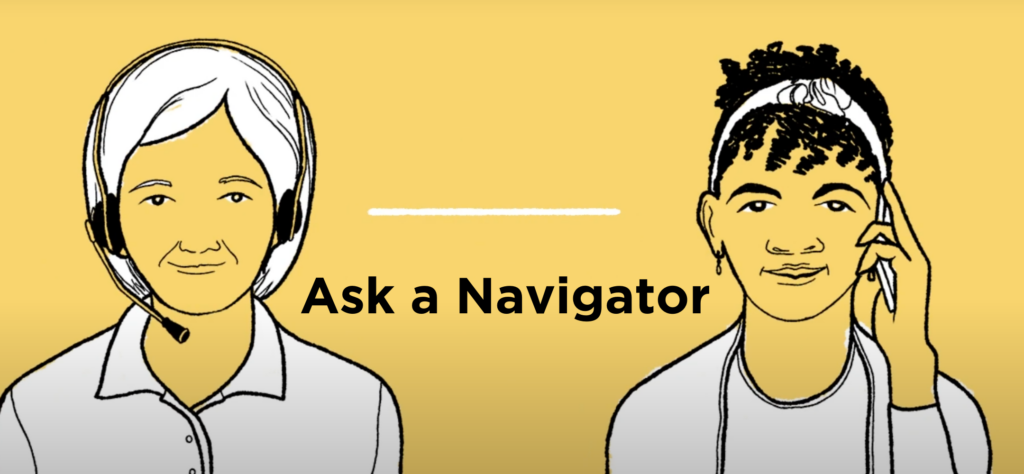
Dear Navigator,
I have been my older sister’s caregiver for many years. While she’s independent in some ways, she has COPD and lung disease that is progressing and making it difficult for her to stay employed, especially during COVID. I used to work full-time but have had to cut back on my hours so that I can support her. If she didn’t have my support I don’t know what she’d do, but I can’t afford not having a full-time income. Are there any programs out there that can pay me to be her caregiver?
Signed,
My Sister’s Keeper
Hi There Keeper,
It is admirable that you would like to help your sister through this chapter in her life. I appreciate that you would like to help her stay in her home as she continues to progress and age. A lot of caregivers hope to be able to provide care to their loved ones without having to sacrifice their financial health in the process.
The first thing I recommend all caregivers do is to find out what their care receiver's insurance situation is. As many of us know, not all insurance is equal, and not all plans cover the same things. If she is hoping to compensate you with her medical insurance she will need to be familiar with what plan she is on and what it covers. If during that process, you find out that the insurance she has will not pay for an in-home caregiver but maybe another plan does, she may want to shift plans. I really recommend that folks who are working through Medicaid/Medicare in this step talk to a lawyer, a Medicaid/Medicare broker, or an insurance specialist to understand those details.
I work with a lot of caregivers whose care receivers are on a Medicaid or Medicare plan that does not cover an in-home caregiver. Typically Medicare only covers in-home palliative or hospice care. Often, they would like to find out how to get on a plan or a waiver such as the aged and disabled waiver that does. I suggest speaking with a specialist like Living Independence Network Corporation (LINC) or a disability lawyer through Idaho Legal Aid or a private firm such as Quade Law.
Of course the easiest option but often the most expensive is when a care-receiver privately pays a caregiver. If your sister had the means but did not qualify for a paid caregiver through insurance or waivers, she could opt to pay you privately.
To recap, the first and most important step is understanding your sister's budget and insurance coverage.
Best Wishes,
Your Family Caregiver Navigator
Dear Navigator,
I've been caring for my wife with Parkinson's for many years. She's recently transitioned to a wheelchair and now I need to move her in and out of bed, into the shower etc. Being her caretaker has become a full-time job and I needed to retire early because of it. With both of us not working, finances have become extremely tight. Are there resources or programs in Idaho that provide support so we can remain in our home together for as long as possible?
Thank you,
Heavy Lifter
Hello Heavy Lifter,
It sounds like there has been some recent changes and you’re juggling a lot of different tasks now. The American Parkinson Disease Association has an Idaho chapter that provides various services throughout different areas of Idaho; Boise, Meridian, Caldwell, Idaho falls and Pocatello. Their website has a lot of resources and information about their support groups, so be sure to reach out and connect so you remember you are not alone and many families are facing the same challenges.
As for financial support, I recommend checking out our Resource Library's Financial Support page to explore some of your options. Idaho Department of Health & Welfare has a program called Certified Family Homes (CFH) where an adult resident is carrying for a vulnerable adult. You may also qualify for some in-home support through Medicaid.
Another agency that may be beneficial to you is Living Independence Network Corp (LINC), this agency provides support with assistive technology, durable medical equipment, personal care services and ramp loan assistance programs. Our Navigators can provide a warm hand-off to these services so you can reach the right contact. Please reach out to us if you need additional support or if we can help you in navigating the various systems. We'd love to build a care plan for you!
Sincerely,
Your Caregiver Navigator
Dear Navigator,
My mom has dementia and is still living at home with my father, a short distance from my house. We have a nurse who comes in and helps manage her daily routines and medications, but it's starting to take its toll on my father. Last week he slipped a disc in his back trying to help her out of the bath. I want to support them more but my siblings and I all work full-time and have our own families. I'm getting nervous for the future as her health continues to deteriorate. How do I know when it's the right time to put her into long-term care?
Anxious Daughter
Dear Anxious Daughter,
You are not alone and there are many like you wondering how to safely sustain care at home for their loved ones. The support that you currently have in place is fantastic, I am so glad to hear you have access to those. There are several agencies in the valley that would be a good connection as you continue on in this journey, like our local Alzheimer's Association for support, education and resources related to memory care needs. The Idaho Commission on Aging offers a free Living with Dementia online training that might help you and your family navigate some of the more distressing behaviors associated with dementia.
It may also be a good idea to check in with your local Area Agency on Aging that provides services like personal care, respite care grants, and meal delivery services that would help sustain independent living. If it is in the budget, private home care services can help alleviate some of your anxieties with more presence at home. As your navigator, I would be happy to chat more with you and provide warm hand-offs to these different services.
Ultimately, long-term planning is very smart of you and your siblings to consider. Speaking with local lawyers and attorneys specializing in estate planning can be very supportive as they can help you find a legal and financial roadmap based on your family's situation. When things become physically unsafe for your mom at home, that is often the time to look into long-term care services. Should that become necessary, there are some care concierge services in the valley that can assess your families needs, finances, and your mom's specific needs and wants to help you narrow down the best care facilities for her.
We are here to help you navigate this complex time in your life. Caregiving isn't an easy job and you sound like you are giving it all you can. Let us help lift your burden by giving us a call at 208-426-5899 to complete an assessment and care plan and get you connected to resources that may help.
Best Wishes,
Your Family Caregiver Navigator

Thanks for your blog, nice to read. Do not stop.